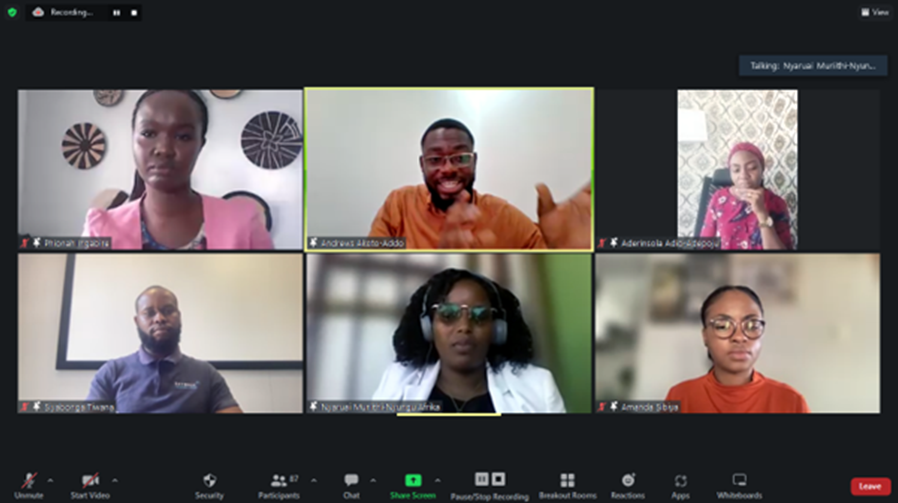Entrepreneurs – the key to Africa’s future
This month, the SVAI convened another African Entrepreneurship Forum for information sharing and discussion around topics affecting SMMEs from across the continent. The quarterly webinars are an integral part of our continued commitment to supporting entrepreneurs, SMMEs and startups in building and growing purpose-driven enterprises that are able to contribute to society and the economy in a sustainable way.
The gathering put the spotlight on entrepreneurial thought leaders who are contributing to the economy in various ways, as well as those who facilitate learning and provide guidance for entrepreneurs throughout their growth journeys.
Amanda Sibiya, Founder of Branding Africa, gave the keynote under the topic Changing the African Narrative – The Importance of Purpose-Driven Brands. In her passion as a pan-African entrepreneur, Amanda spoke of her dedication to helping entrepreneurs build brands that will outlive them – and that is through purpose.
Amanda emphasised an important mind-shift that is needed to build businesses not only out of necessity, but to build purpose-driven enterprises that will contribute to society and the economy in the long term. While making a profit is important, it is more than just profit.
Next was Phionah Ingabire, a business development specialist and Director at Noble Women – a capacity building initiative for women entrepreneurs in Rwanda. In their journey to success, entrepreneurs require training to ensure understanding of what is required of them to progress – this is implemented through an approach of “equip, empower and transform”. This focus on women will put them at the forefront of Africa’s business landscape.

An incredibly engaged audience then not only watched but also actively participated in the discussion, along with the panel comprising Amanda and Phionah, as well as Aderinsola Adio-Adepoju (Founder of I-Train Africa in Nigeria), Mary Nyaruai (Innovator and Founder of Nyungu Afrika in Kenya) and Siyabonga Tiwana (Co-Founder of Skywalk Innovations in South Africa). As usual, the panel was moderated by business development specialist and Shared Value advocated Andrews Akoto-Addo.
Following an introduction by each participant on their work, the discussion was underway starting with the disparity between the much alluded growth potential of the African continent versus an inability to maximise on our prospects as a continent.
The mindset of consumption focuses on external sources – not on our own materials. We import externally and don’t buy from locally grown businesses. The root cause of this ranges from perceptions that products from outside are better to the perceived inability to manufacture cost-effectively, since materials are seen as more expensive when sourced from within the continent. This includes the prevailing perception that ‘made in Africa’ products are of lower quality, further compounded by lack of trust, as highlighted by Siyabonga. He also emphasised the fact that (especially in the tech space) the standard approach to innovation tends to be localising international products, instead of innovating new products that address local challenges as a business.
Mary raised the point that governments can better support entrepreneurs by investing in research and development by entrepreneurs. This will not only help them in creating innovative products but also contribute to building a better, stronger narrative around African entrepreneurs and the landscape around them.
Amanda pointed out that in order to understand entrepreneurship; one must keep in mind the challenges of scalability and sustainability when innovating, as that will be key to growing the economy.
Aderinsola said that clarity is what helps one determines your purpose and business proposition. Clarity on what problem one is solving, and thinking beyond the idea but how will it solve challenges in society. In addition, working using the Sustainable Development Goals as a framework can help drive an organisation that is delivering on their purpose.
The final word went to Mary, who pointed out the importance of not only investing in one’s business but also one’s mental health – as this will help adjust the mind-set of an entrepreneur to better deliver on his or her purpose.
A common narrative from all speakers and attendees was that through solving African problems, African entrepreneurs can and will create a competitive edge as businesses. The journey is not a quick one, but platforms such as the African Entrepreneurship Forum can support SMEs along the way.
A recording of the session is available here




